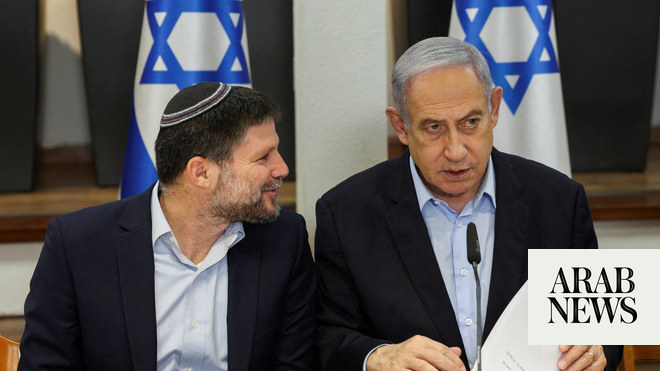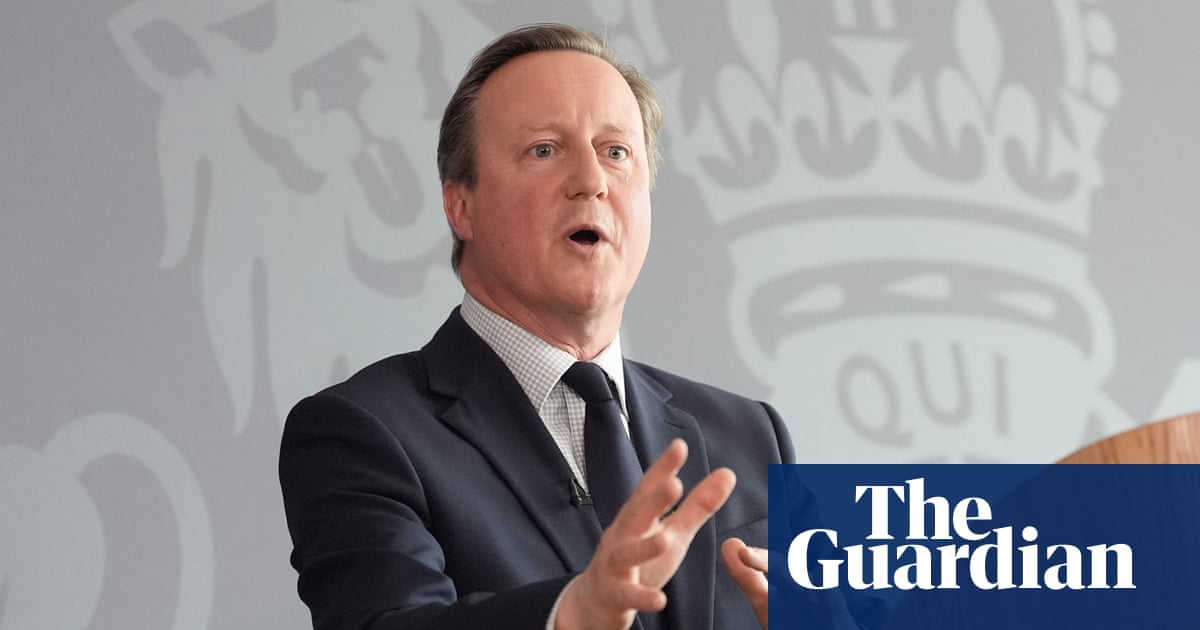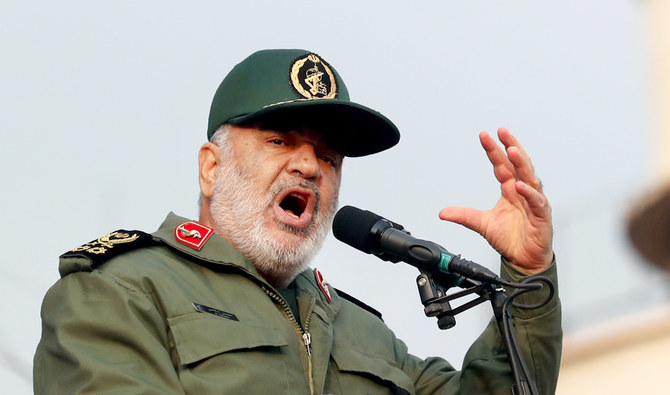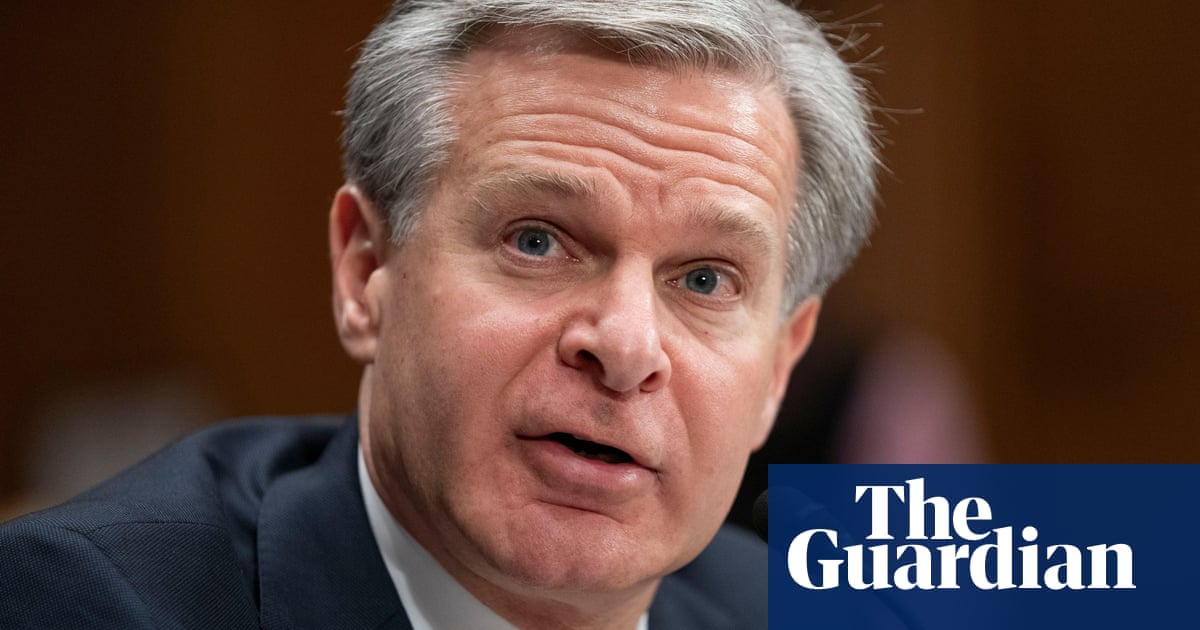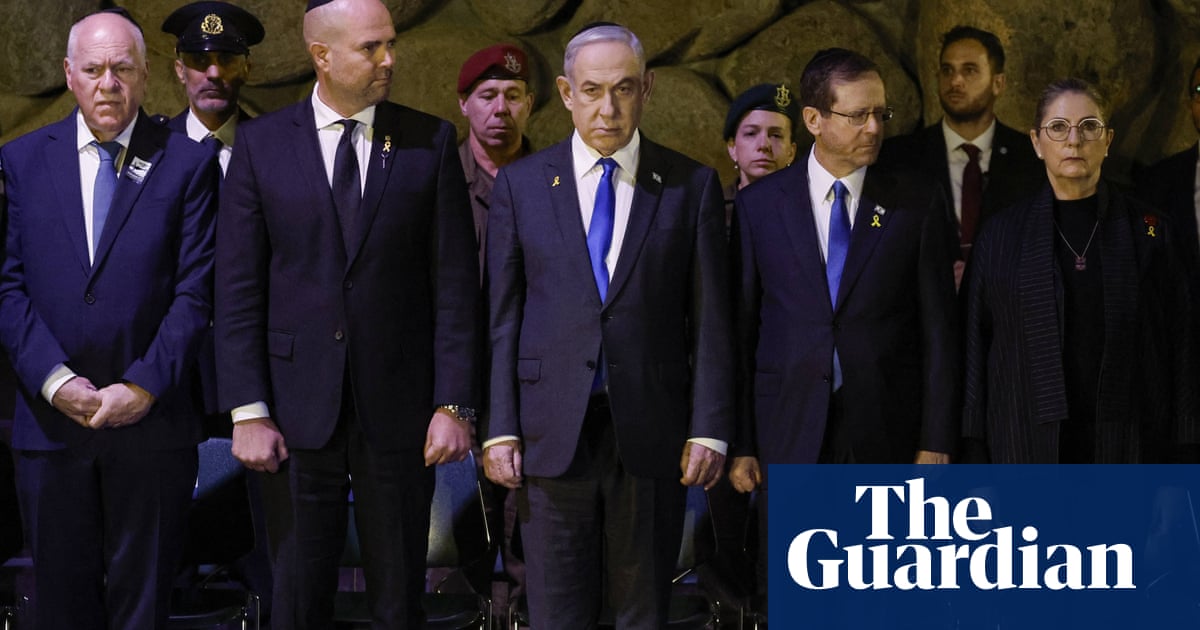
Benjamin Netanyahu has vowed that Israel will stand alone and “fight with our fingernails” in defiance of US threats to further restrict arms deliveries if Israeli forces proceed with an offensive on the southern Gazan city of Rafah.
Netanyahu, the Israeli prime minister, was speaking on Thursday after Israeli and Hamas delegations left the ceasefire negotiations in Cairo.
It was unclear whether the talks had broken down or simply paused, but the failure to reach an agreement in this week’s round of meetings raised fears of an imminent Israeli attack on Rafah.
Netanyahu appeared to shrug off a public warning from the US president Joe Biden the previous night that if the Israel Defense Forces (IDF) launched a major offensive on the city the US would not provide bombs and artillery shells to support the operation.
“If we have to stand alone, we will stand alone. If we need to, we will fight with our fingernails. But we have much more than fingernails,” Netanyahu said. He noted that Israel was approaching the 76th anniversary of its independence, which it had to fight for. “We did not have weapons,” he said, referring to the 1948 war. “There was an arms embargo on Israel, but with great strength of spirit, heroism and unity among us – we were victorious.”
US officials had been hopeful that a diplomatic breakthrough could be achieved in hostages-for-ceasefire negotiations following a Hamas announcement on Monday that it had accepted a deal. It was unclear what specific terms it had accepted, and Israel, though sceptical, agreed to send a delegation to Cairo to find out.
An unnamed senior Israeli official was quoted by Reuters on Thursday as saying that the Israeli delegation laid out its reservations to the Hamas position, and deemed the round of Cairo talks to have ended.
The official said the Israeli delegation was returning from the Egyptian capital and Israel would proceed with its operation in Rafah and other parts of the Gaza Strip as planned.
The White House confirmed that the CIA director, William Burns, was also leaving Cairo, but denied that the negotiations had broken down.
“Director Burns is departing the region as previously scheduled, but interlocutors from other delegations are still in discussions in Cairo, so those talks are still going on,” John Kirby, the national security spokesperson, told reporters. “We’re going to stay engaged, in the hopes that we might be able to land something.”
US officials however were privately pessimistic about being able to prevent an offensive into Rafah, which Biden said on Thursday would trigger more restrictions on the US arms supply, specifically regarding bombs and artillery shells.
Last week, the administration paused the delivery of 1,800 2,000lb bombs and 1,700 500lb bombs in an indication it is prepared to take action to stop a Rafah offensive.
The chief IDF spokesperson, Rear Admiral Daniel Hagari, said the Israeli military could carry out its planned operations without US support. “The army has armaments for the missions it plans, and for the missions in Rafah too. We have what we need.”
A major offensive on the city of Rafah would threaten the lives of more than a million Gazans who have sought haven there and who have not received any serious provisions in terms of shelter, food, water and medical support from Israel.
Their survival has already been made more precarious by the closing of the two crossings into southern Gaza, Rafah and Keren Shalom, on Monday when the IDF began action to capture the Gazan side of the Rafah crossing, to the east of the city.
Rafah has run out of fuel and its hospitals are in danger of being overwhelmed, according to medical staff.
Keren Shalom officially reopened on Thursday, but aid trucks were unable to navigate the roads because of security concerns and battle damage.
Meanwhile, very little aid is entering Gaza through the northern gate at Erez, close to where hundreds of thousands of people who have been cut off by the Israeli offensive are in imminent danger of starvation, according to the UN and aid agencies.
Alexandra Saieh, the head of humanitarian policy and advocacy for Save the Children, said access through Erez crossing had been sporadic.
“Erez never became fully operational,” she said at an online press conference. “The humanitarian access needed to stave off famine that was projected back in March has not been granted.”
Cyprus announced on Thursday that a first-aid ship had left the island to go to a US-made floating pier, from where humanitarian assistance is supposed to be unloaded and distributed. However, US engineers have yet to connect a causeway to the Gaza coast, along which the aid is meant to be driven on to the land, and there remain many unanswered questions over how provisions would then be distributed.
US officials said the capture of the Rafah crossing was a tactical operation with a low number of casualties. The UN, however, said intensified IDF attacks on the Rafah area had triggered the exodus of more than 100,000 people – the largest movement of population in Gaza for many months. The mass displacement of people in the event of a large-scale Rafah offensive would be far greater.
In his remarks on Thursday, Kirby spelled out what sort of operations on Gaza city would trigger further US restrictions on arms. “I think we all understand what a major ground operation looks like in terms of the size of the forces involved, the kinds of operations that would connote large forces, large movements, a lot of civilian casualties, a lot of damaged infrastructure – as opposed to more precise, more targeted, more limited kinds of operations, like we are seeing right now down at the Rafah crossing.”
He added: “A lot is going to depend on what we see Israel do in Rafah and in their planning for Rafah.”
After his warning of more curbs on weapons supplies, Biden faced a backlash from Israeli and US Republican politicians, who accused him of letting Israel down in the face of existential threats.
Bezalel Smotrich, Israel’s far-right finance minister, wrote on X: “We must continue the war until Hamas is totally eliminated and our hostages are back home. This involves conquering Rafah completely and the sooner the better.”
Itamar Ben-Gvir, another far-right minister, posted “Biden - heart emoji - Hamas” on social media, but later said Israel should “respect our friends but also fight our enemies without considering other factors and without compromises”.
The populist politician’s earlier tweet prompted a reprimand from Isaac Herzog, Israel’s president, who called Biden “a great friend of the state of Israel” and criticised “baseless, irresponsible and insulting statements and tweets” during a speech marking the anniversary of VE Day.
Yair Lapid, leader of Israel’s main opposition party, called for Ben-Gvir to be fired for “endangering every soldier in the IDF and every citizen in the state of Israel”.
Kirby insisted on Thursday that Israeli forces were “still getting that [weaponry], the vast, vast majority of everything that they need to defend themselves”.
“We could also in fact help them target the leaders, including Mr Sinwar, which we are frankly doing with the Israelis on an ongoing basis,” Kirby added in what appeared to be the first US confirmation that America had been providing help to the Israelis in targeting Hamas leaders including Yahya Sinwar, the mastermind of the 7 October attack on Israel which killed about 1,200 Israelis.
Dr Yonatan Freeman, an international relations expert at the Hebrew University of Jerusalem, said Biden’s announcement, far from pressuring Netanyahu, could strengthen the Israeli prime minister.
“Some are saying Netanyahu has ruined Israel’s relationship with the US but others are saying this shows that we are alone, and that the lesson of history is that we can’t trust that anyone will be with us always and in every way. That’s what Netanyahu has been saying and that’s the narrative that is dominant in the mind of most Israelis, and so the whole issue will strengthen Netanyahu’s political position,” Freeman said.




